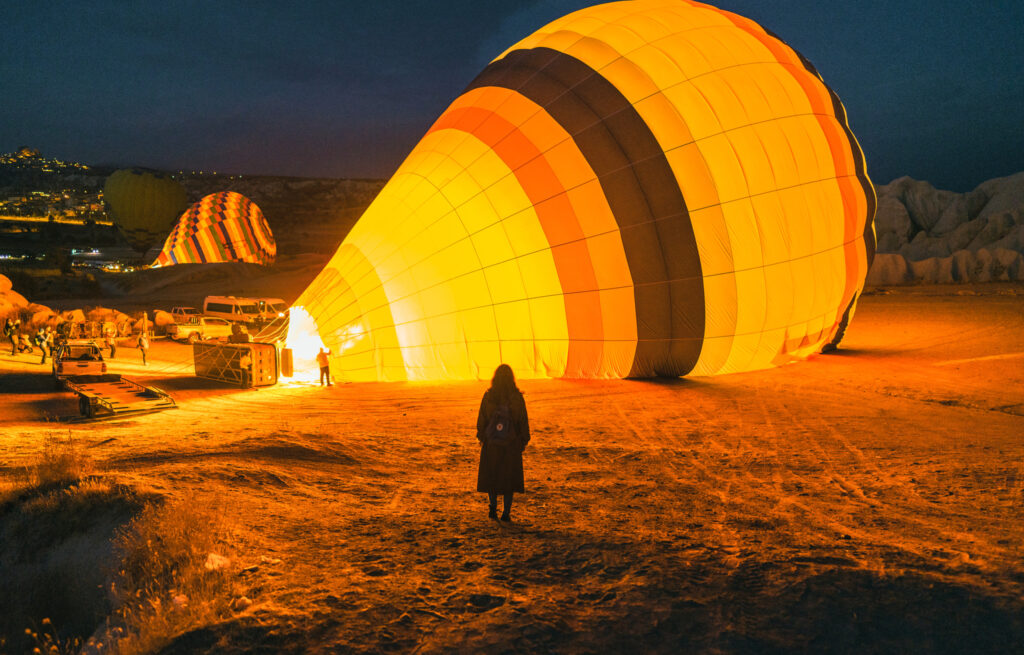Hot air balloon deals has long been associated with adventure, romance, and breathtaking views from above. In recent years, this age-old activity is being redefined by a growing focus on sustainability. With eco-tourism gaining momentum globally, private hot air balloon Dubai operators are taking innovative steps to minimize their environmental impact, offering tourists a greener way to explore natural landscapes.
The Rise of Eco-Tourism and Its Impact on private Hot Air Balloon Dubai
Eco-tourism, defined as responsible travel to natural areas that conserves the environment and benefits local communities, is becoming a significant trend in the tourism industry. Travelers are increasingly seeking experiences that allow them to enjoy nature without compromising its integrity. Hot air ballooning Experience fits naturally into this trend because it offers a low-impact way to explore vast landscapes while providing minimal disruption to the environment below.
However, despite being considered a relatively eco-friendly activity due to its silent flight and lack of ground disturbance, the hot air ballooning industry is now addressing specific environmental concerns like fuel usage, waste management, and land preservation to further align with eco-tourism principles.
Sustainability Innovations in private Hot Air Balloon Dubai
Use of Cleaner Fuels
Traditional private hot air balloons Dubai rely on propane, a fossil fuel, to generate the heat required for flight. However, advancements in sustainable fuel alternatives are making their way into the industry:
Bio-Propane: Bio-propane, derived from renewable sources such as organic waste and vegetable oils, is being explored as a viable alternative. It offers similar energy efficiency to traditional propane but significantly reduces carbon emissions. Hydrogen-Powered Balloons: Some innovators are experimenting with hydrogen-fueled balloons, which produce water as their only by-product. Though still in developmental stages, hydrogen technology holds promise for future eco-friendly ballooning.
Carbon Offsetting Programs

Many hot air balloon operators are adopting carbon offsetting programs. These initiatives allow companies to compensate for their emissions by investing in environmental projects such as reforestation, renewable energy development, and conservation efforts. By purchasing carbon credits, ballooning companies ensure that their environmental impact is balanced by positive ecological contributions.
Eco-Friendly Operations and Ground Practices
Sustainability efforts extend beyond the flight itself. Operators are implementing eco-conscious practices on the ground, including:
Waste Management: Reducing single-use plastics and implementing recycling systems at launch sites
Eco-Tourism Packages: Offering packages that include eco-lodges, locally sourced meals, and educational
programs on regional conservation efforts.
Vehicle Efficiency: Using electric or hybrid vehicles for ground support operations to reduce emissions associated with transportation.
Why Eco-Friendly private Hot Air Balloon Dubai Matters
Protecting Natural Habitats
private Hot air ballooning often takes place over delicate ecosystems such as deserts, savannahs, and wetlands. By adopting sustainable practices, operators can minimize their impact on these environments, preserving them for future generations.
For example, in desert ecosystems like Dubai’s sand dunes, balloons provide an alternative to off-road vehicles, which can damage fragile soil and disrupt local wildlife. The quiet, low-impact nature of ballooning allows tourists to witness the beauty of the landscape without contributing to its degradation.
Educating and Inspiring Travelers
Eco-friendly hot air balloon experiences often include educational components, helping travelers understand the importance of conservation. Pilots and guides can highlight the environmental significance of the landscapes below, fostering a deeper appreciation for nature and inspiring tourists to adopt sustainable practices in their own lives.
Supporting Local Communities

Many eco-tourism initiatives are designed to benefit local communities economically and culturally. By prioritizing local partnerships, balloon operators can create jobs, support local artisans, and contribute to regional development. This holistic approach ensures that eco-tourism provides benefits beyond environmental conservation, fostering sustainable community growth.
Notable Examples of Eco-Friendly Hot Air Ballooning
Dubai Desert Ballooning
Dubai is emerging as a leader in eco-friendly hot air balloon ride. Operators in the region have embraced sustainable practices, offering rides that highlight the natural beauty of the desert while minimizing environmental impact. Many of these experiences incorporate eco-conscious elements such as biodegradable materials, waste reduction programs, and partnerships with conservation organizations that protect desert wildlife.
Ballooning Over Maasai Mara, Kenya
In Kenya’s Maasai Mara National Reserve, hot air ballooning operators are adopting eco-friendly initiatives by integrating bio-fuel technologies and partnering with local conservation groups. By offering balloon safaris that support wildlife protection efforts, these companies are setting a standard for sustainable tourism in Africa.
Challenges and Future Prospects
While significant strides are being made, the transition to fully sustainable hot air ballooning faces challenges:
Cost of Innovation: Developing and implementing sustainable technologies, such as bio-propane and hydrogen fuels, can be costly. Smaller operators may struggle to afford these innovations without government support or industry-wide collaboration.
Regulatory Frameworks: The lack of standardized eco-tourism regulations in the ballooning industry can slow progress. Establishing clear sustainability guidelines will be crucial to encouraging widespread adoption of eco-friendly practices.
Despite these challenges, the future of hot air ballooning looks promising. As consumer demand for eco-tourism grows, operators are likely to continue innovating and embracing greener solutions, making hot air ballooning an increasingly sustainable and responsible adventure.
Conclusion: A New Horizon for Eco-Tourism in the Skies
Hot air ballooning is undergoing a transformation as operators prioritize sustainability and align their practices with eco-tourism values. By adopting cleaner fuels, reducing waste, and supporting conservation efforts, the industry is not only reducing its environmental footprint but also enhancing the overall tourist experience. For travelers seeking a unique, eco-conscious adventure, hot air ballooning offers an unforgettable way to witness the world’s most stunning landscapes from above while contributing to their preservation.











